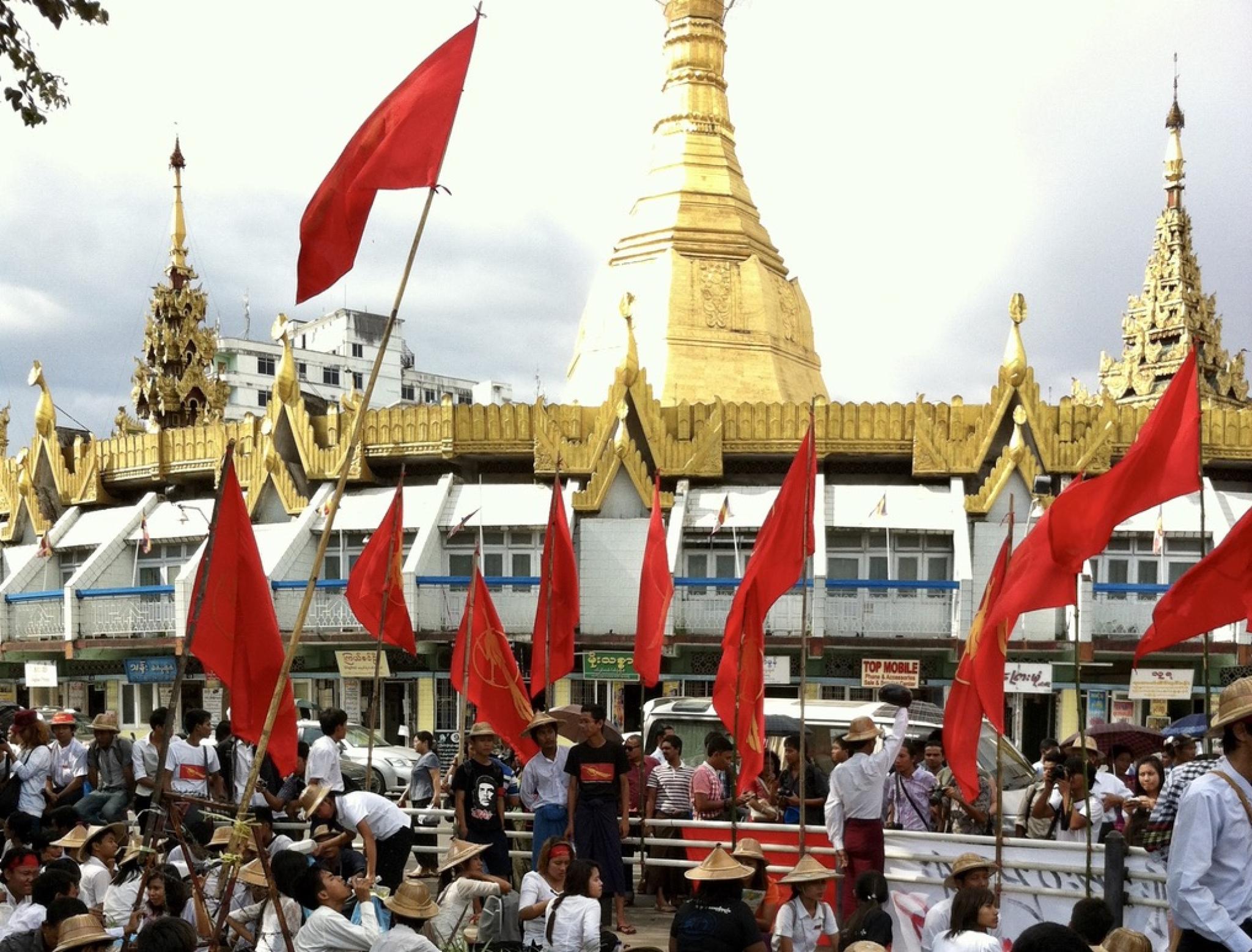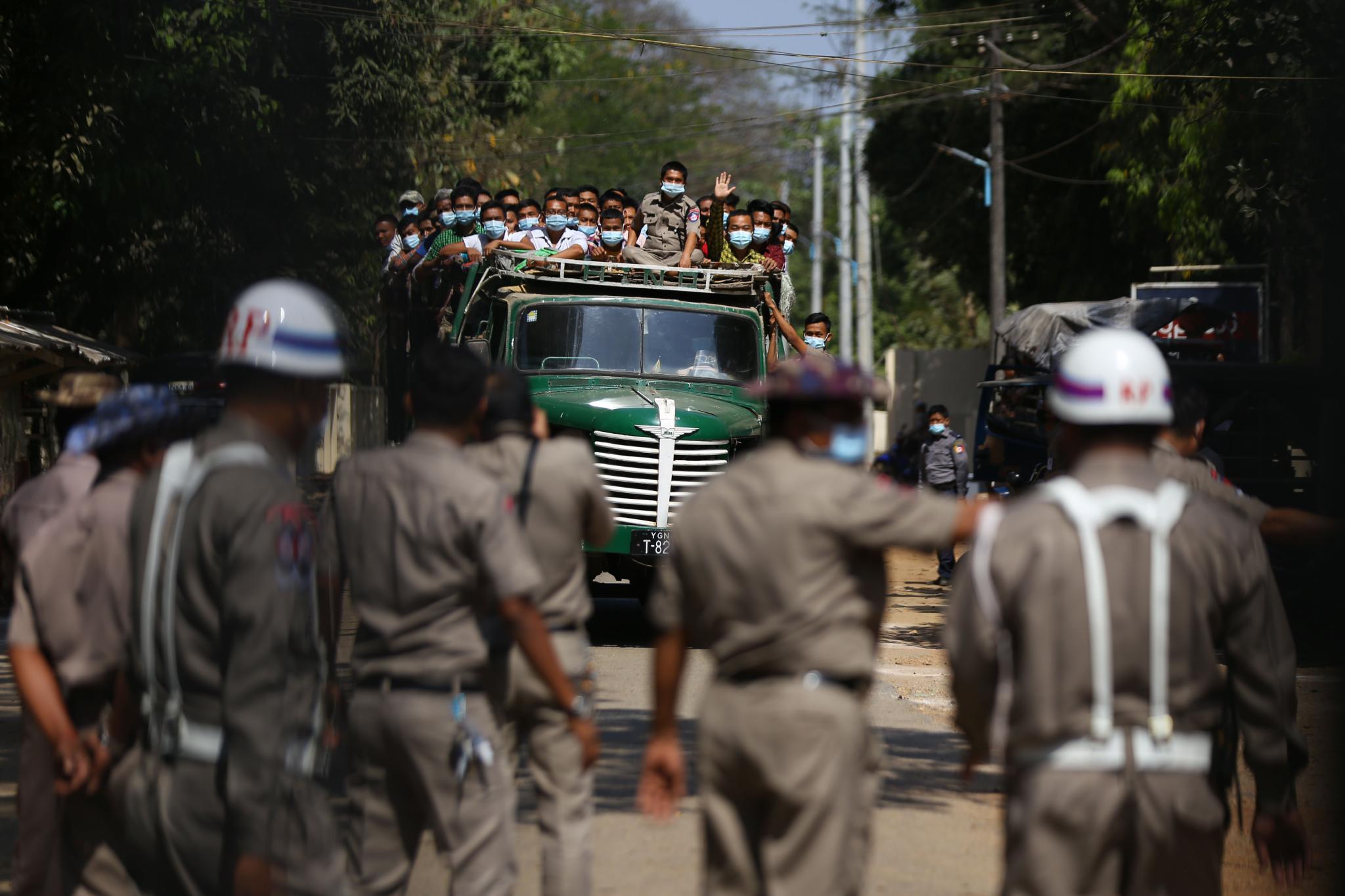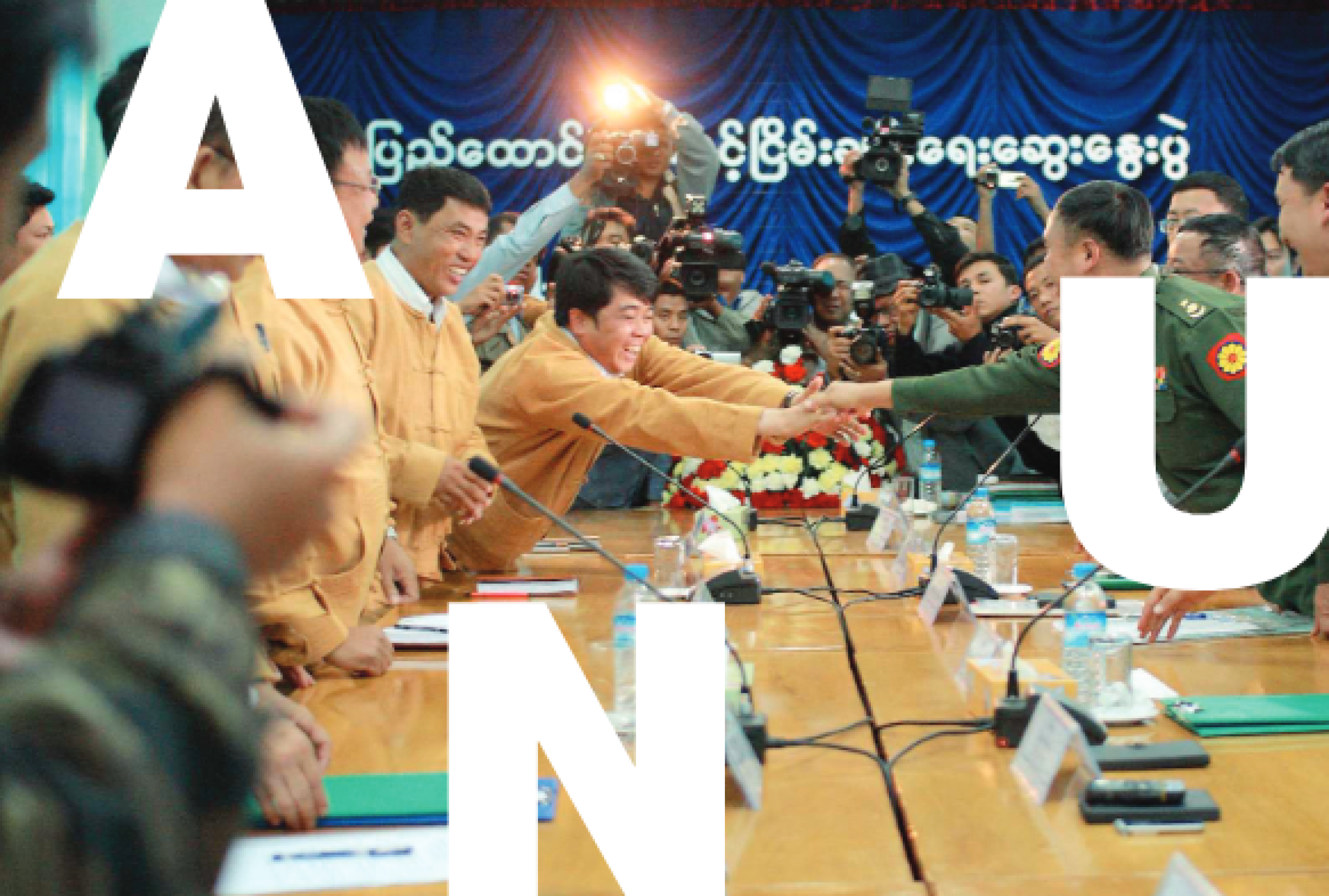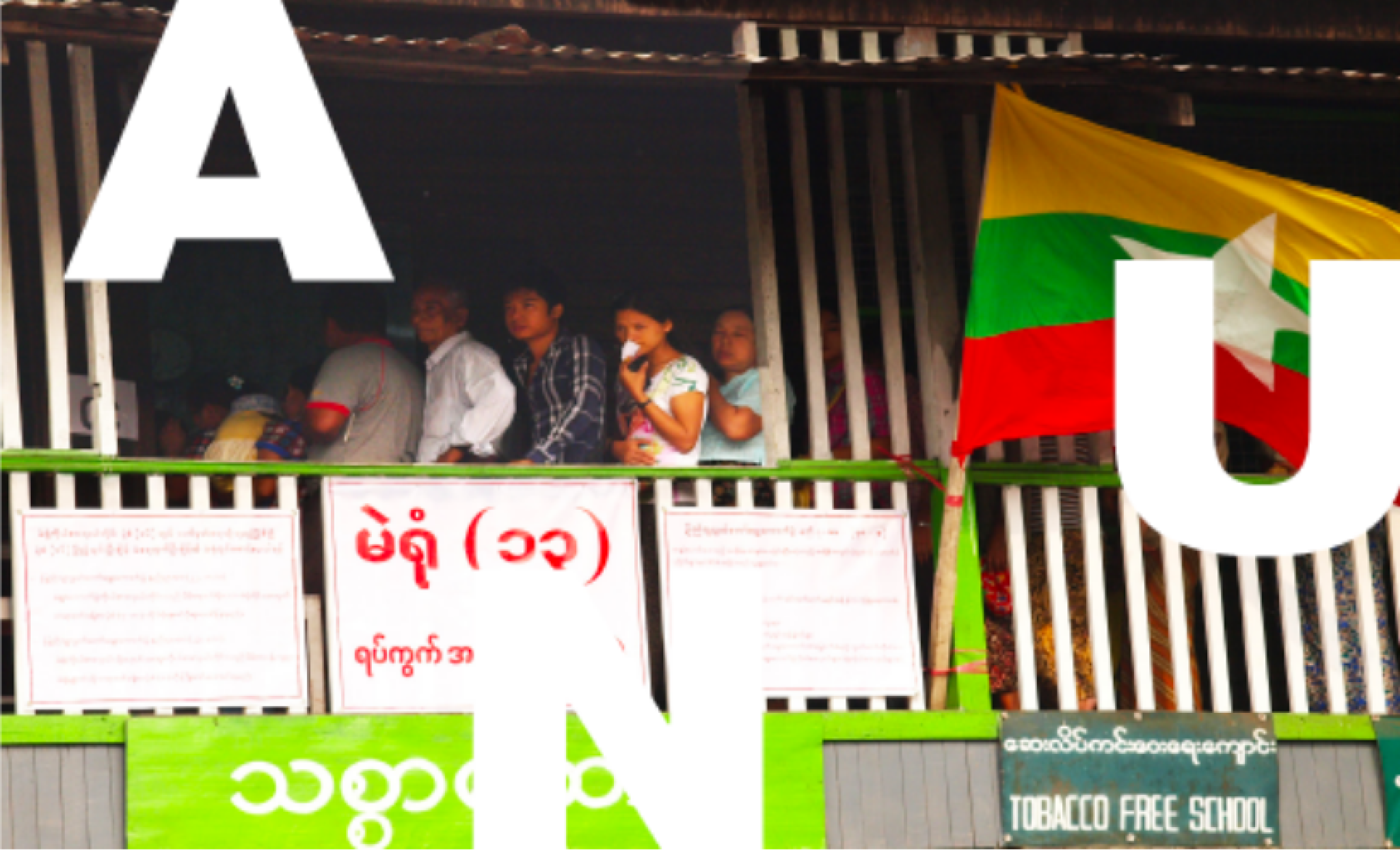The conference was held at The Australian National University on Friday 21 July – Saturday 22 July 2023.
The two-day conference featured scholars and experts from Australia, Myanmar, UK, North America and around the regions.
There were also pre-conference events on Thursday 20 July:
Convening Committee
- Cecile Medail - Visiting Fellow, Department of Political and Social Change, ANU, cecile.medail@anu.edu.au
- Morten Pedersen - Board member, Myanmar Research Centre, ANU, Morten.Pedersen@adfa.edu.au
- Yuri Takahashi - Lecturer and Convenor of the Burmese Program, ANU, Yuri.Takahashi@anu.edu.au
- Samuel Hmung - Research Officer, Myanmar Research Centre, ANU, Samuel.hmung@anu.edu.au
PROGRAM
Pre-conference Events (Thursday 20 July)
8.30am-4.30pm Early Career Researcher workshop (by invitation)
4.30-5pm Launch of Myanmar Update photo exhibition by Mayco Naing (Artist and Curator)
Venue: Auditorium Foyer, Australia Centre on China in the World Building 188, Fellows Lane, ANU
- Introduction by exhibition curator Mayco Naing
- Photo exhibition by Mauk Kham Wah and Mayco Naing
- Video documentary -1 minute per day in the 60 days following the coup by M. (screening all day on 21-22 July only, CIW seminar room)
5-5.30pm Refreshments (for exhibition and guest address)
5.30-6.30pm Guest Lecture - De-‘Area Studies’-izing Burmese History: the African (and African American) ‘Burma” Experience in the Twentieth Century
Venue: Auditorium, Australia Centre on China in the World Building 188, Fellows Lane, ANU
- Michael Charney, SOAS, University of London
7-8.30pm Preconference Dinner (by invitation)
Day 1 (Friday 21 July)
Venue: Auditorium, Australia Centre on China in the World Building 188, Fellows Lane, ANU
9-9.30am Welcome
- Welcome to the Country by Paul Girrawah House, First Nations Portfolio, ANU
- Opening remarks by Helen Sullivan, Dean of the ANU College of Asia and the Pacific
9.30-10.30am Keynote Address
Chair: Nick Cheesman, ANU
- H.E. Zin Mar Aung, Minister of Foreign Affairs, National Unity Government of the Union of Myanmar (online)
- Discussant: Tun Aung Shwe, Representative to Australia of the National Unity Government of the Union of Myanmar
10.30-10.45am Morning Tea
10.45am-12.45pm Political Update
Chair: Andrew Selth, Griffith University
- Ardeth Maung Thawnghmung, University of Massachusetts Lowell
- Ye Myo Hein, Wilson Center (online)
12.45-1.45pm Lunch Break
1.45- 3.15pm Panel 1: The Revolutionary Movement
Chair: George Lawson, ANU
- Samuel Hmung and Michael Dunford, Australian National University - “Understanding Myanmar’s Civil Disobedience Movement”
- Ellen, McMaster University, Canada - “Women's agency in armed struggles in Myanmar's Spring Revolution”
- Lukas Nagel, Griffith University - “Creative resistance and nationalism among youth activists in post-coup Myanmar”
3.15-3.30pm Afternoon Tea
3.30-5pm Panel 2: Revolutionary Governance
Chair: Jane Ferguson, ANU
- Gerard McCarthy and Kyle Nyana, Erasmus University - “Governing revolution: Post-coup insurgent social order in Chin State and Sagaing Region” (online)
- Tay Zar Myo Win, Deakin University - “Emerging local governance in Anyar”
- Khin Zaw Win, Tampadipa Institute - "Reimagining the goals of the Spring Revolution"
5-6.30pm Conference Reception (In-person only)
Venue: Auditorium Foyer, Australia Centre on China in the World Building 188, Fellows Lane, ANU
- Promotion of Art Exhibition: How to quantify FEAR? by artist and curator Mayco Naing
Day 2 (Saturday 22 July)
Venue: Auditorium, Australia Centre on China in the World Building 188, Fellows Lane, ANU
9.30-10.00am Book Launch: "Myanmar in Crisis" (In-person only)
- Book author: Michael Dunford, Australian National University
- Discussant: Cecilia Jacob, Australian National University
Book Sale - A limited number of books are available for sale for AUD $25 (card only).
10am-12pm Economic Update and Humanitarian Issues
Chair: Paul Burke, ANU
- Jared Bissinger, Independent analyst
- Tom Kean, International Crisis Group
- Anne Décobert, and Tamas Wells, University of Melbourne -“Myanmar’s humanitarian crisis and the conflict paradox for local aid organisations"
12-1pm Lunch Break
1-3pm Policy Panel & Closing Remarks (In-person only)
Chair: Morten Pedersen, UNSW Canberra
- Ardeth Maung Thawnghmung, University of Massachusetts Lowell
- Khin Zaw Win, Tampadipa Institute
- Jared Bissinger, Independent analyst
- Representative, Department of Foreign Affairs and Trade
3-3.15pm Afternoon Tea
3.15-4.45pm Burmese Language Roundtable: "Researching and reporting in post-coup Myanmar" (In-person only)
Venue: Seminar Room, Australia Centre on China in the World Building 188, Fellows Lane, ANU
Chair: Samuel Hmung, ANU
- Swe Win, Myanmar Now
- Ardeth Maung Thawnghmung, University of Massachusetts Lowell
- Khin Zaw Win, Tampadipa Institute
Abstracts are collected here in pdf.







